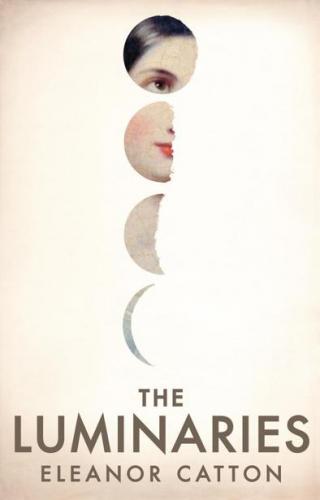
Аннотация
It is 1866, and Walter Moody has come to make his fortune upon the New Zealand goldfields. On the stormy night of his arrival, he stumbles across a tense gathering of twelve local men, who have met in secret to discuss a series of unsolved crimes. A wealthy man has vanished, a prostitute has tried to end her life, and an enormous fortune has been discovered in the home of a luckless drunk. Moody is soon drawn into the mystery: a network of fates and fortunes that is as complex and exquisitely patterned as the night sky.
In which a stranger arrives in Hokitika; a secret council is disturbed; Walter Moody conceals his most recent memory; and Thomas Balfour begins to tell a story.
In which the merits of asylum are discussed; a family name comes into question; Alistair Lauderback is discomfited; and the shipping agent tells a lie.
In which Cowell Devlin makes a poor first impression; Te Rau Tauwhare offers information at a price; Charlie Frost is suspicious; and we learn the crime of which Francis Carver was convicted, years ago.
In which Joseph Pritchard outlines his theory of conspiracy; George Shepard makes a calculated offer; and Harald Nilssen agrees, in a tone of remonstration, to pay a call upon Ah Quee.
In which the chemist goes in search of opium; we meet Anna Wetherell at last; Pritchard becomes impatient; and two shots are fired.
In which Charlie Frost forms a hunch; Dick Mannering buckles on his holsters; and we venture upriver to the Kaniere claims.
In which Gascoigne recalls his first encounter with the whore; several seams are unpicked with a knife; exhaustion takes its toll; and Anna Wetherell makes a request.
In which Gascoigne raises the issue of Anna’s debt, and Edgar Clinch does not confide in him.
In which Quee Long is interrupted thrice; Charlie Frost holds his ground; and Sook Yongsheng names a suspect, to everyone’s surprise.
In which the widow shares her philosophy of fortune; Gascoigne’s hopes are dashed; and we learn something new about Crosbie Wells.
In which poor impressions are restored; the invitations multiply; and the past rolls forward to touch the present hour.
In which Walter Moody meditates upon the mystery at hand; we learn what happened on his journey from Dunedin; and a messenger brings unexpected news.
In which our allegiances have shifted, as our countenance makes clear.
In which Te Rau Tauwhare goes in search of employment and Löwenthal’s suggestions are rebuffed.
In which Thomas Balfour suffers a lapse of discretion; old subjects are revived; and Alistair Lauderback pens a letter of complaint.
In which Gascoigne repeats his theories, and Moody speaks of death.
In which certain key facts are disputed; Francis Carver is discourteous; and Löwenthal is provoked to speak his mind.
In which Sook Yongsheng pays another unexpected call; Lydia Wells has a most prophetic notion; and Anna finds herself alone.
In which Harald Nilssen reneges upon a contract; the holy book is opened; Cowell Devlin is confounded; and George Shepard forms a plan.
In which Gascoigne finds common ground with Francis Carver; Sook Yongsheng acts upon a false impression; and Quee Long gives the avenger some advice.
In which Walter Moody makes a startling discovery; several confusions are put to rest; and a symmetry presents itself‘.
In which the Wayfarer’s Fortune opens to the public at long last.
In which Sook Yongsheng forgets his shilling; Lydia Wells becomes hysterical; and we receive an answer from the realm of the dead.
In which Moody passes on some vital information, and Sook Yongsheng presents him with a gift.
In which Anna Wetherell is twice surprised; Cowell Devlin grows suspicious; and the deed of gift acquires a new significance.
In which George Shepard does not appoint a deputy; Quee Long is mistaken for another man; and Dick Mannering draws the line.
In which the chaplain loses his temper, and the widow loses a fight.
In which Aubert Gascoigne is very much amused; Cowell Devlin abdicates responsibility; and Anna Wetherell makes a mistake.
In which Te Rau Tauwhare makes a startling discovery.
In which Sook Yongsheng pays a call upon a very old acquaintance, and Francis Carver dispenses some advice.
In which Mr. Staines takes his medicine, and Miss Wetherell takes a fall.
In which Sook Yongsheng overhears the beginning of a conversation.
In which the lovers sleep through much commotion.
In which a steamer arrives in Port Chalmers from Sydney, and two passengers are roused before the rest.
In which Cowell Devlin makes a request; Walter Moody shows his mettle; and George Shepard is unpleasantly surprised.
In which a temptation presents itself, under a guise.
In which the defendant waxes philosophical; Mr. Moody gains the upper hand; Lauderback gives a recitation; and the Carvers are caught in a lie.
In which Lydia Wells is as good as her word; Anna Wetherell receives an unexpected visitor; and we learn the truth about Elizabeth Mackay.
In which two verdicts are delivered, and the justice fits the sentence to the crime.
In which Mrs. Wells receives a false impression, and Francis Carver relays important news.
In which a stranger arrives upon the beach at Hokitika; the bonanza is apportioned; and Walter Moody quits the Crown Hotel at last.
In which Mrs. Wells makes two very interesting discoveries.
In which Crosbie Wells makes a request; Lydia Wells is imprudent; and Anna Wetherell plays witness to a rather ugly scene.
In which Francis Carver receives a message, and Staines is left alone.
In which Wells’s suspicion deepens; Anna becomes alarmed; and a package arrives at the House of Many Wishes, addressed to Mrs. Wells.
In which Emery Staines does Carver’s bidding, and Ah Sook is effectively deceived.
In which Crosbie Wells puts two and two together.
In which Carver takes an alias, and Lauderback signs his name.
In which Carver comes to finish the deed; Crosbie Wells makes a counter-attack; and the laudanum takes effect.
In which Crosbie Wells asks for help; a customs agent becomes angry; and a bill of lading is recalled.
In which Emery Staines takes his metal to the bank; Crosbie Wells proposes a deceit; and Staines begins to doubt his first impression, much too late.
In which Carver begins his search for Crosbie Wells; Edgar Clinch offers his services; and Anna Wetherell hardens her resolve.
In which Crosbie Wells makes for the Arahura Valley, and the steamer Titania is wrecked upon the bar.
In which two chance acquaintances are reunited, and Edgar Clinch is less than pleased.
In which Francis Carver asks Te Rau Tauwhare for information; but Tauwhare, having not yet made the acquaintance of a Mr. Crosbie Wells, cannot help him.
In which Benjamin Löwenthal perceives an error, and Staines acts upon a whim.
In which Francis Carver makes an acquaintance at the Imperial Hotel.
In which Edgar Clinch attempts to exercise his authority, having deduced that Anna’s recent decline in health owes much to a new dependency both facilitated and encouraged by her employer, Mannering; and Anna Wetherell, whose obstinacy of feeling is more than a match for Clinch’s own, does not indulge him.
In which Emery Staines enjoys a long luncheon with the magnate Mannering, who, over the past month, has made a concerted effort to court his friendship, behaving mayorally, as he prefers to do, as though all goldfields triumphs are his to adjudicate, and his to commend.
In which Sook Yongsheng, having recently taken up residence in Kaniere Chinatown, journeys into Hokitika to outfit himself with various items of hardware, where he is observed by the gaoler George Shepard, known to him as the brother of the man he had been accused of having murdered, and also, as the husband of that man’s true murderer, Margaret.
In which Alistair Lauderback, believing his half-brother Crosbie Wells to be the half-brother, on his mother’s side, of the blackguard Francis Carver, and believing, consequently, that Crosbie Wells had been in some way complicit in the blackmail under which he, Lauderback, surrendered his beloved barque Godspeed, is perplexed to receive a letter with a Hokitika postmark, the contents of which make clear that his apprehension has been quite false, a revelation that prompts him, after a great deal of solemn contemplation, to write a letter of his own.
In which Emery Staines pays a call upon Anna Wetherell at the Gridiron Hotel, where he begs her, after some preamble, to narrate her version of Crosbie Wells’s escape; and Anna, made curious by the urgency and frankness of his appeal, sees no reason not to recount the tale in full.
In which Te Rau Tauwhare declines to mention Francis Carver’s name to Crosbie Wells, much less to describe the circumstances of their brief interaction one month prior, an omission that owes in equal parts to a deeply private nature and to a certain cunning when it comes to financial profit; the next time he sees Francis Carver, Tauwhare thinks, he will make an easy shilling, perhaps more.
In which Quee Long brings a complaint before the law, and George Shepard, whose personal hatred of Sook Yongsheng has grown, over time, to include all Chinese men, declines to honour it, an injustice for which he does not, either then, or afterwards, feel any compunction.
In which Alistair Lauderback, having now officially announced his intention to run for the Westland seat in the Fourth New Zealand Parliament, an ambition that, in addition to furthering his already illustrious political career, will take him over the Alps to Westland proper in the coming months, thus granting the interview his bastard brother has so long desired, now turns his mind to practical matters, or, more accurately, entreats an old associate to turn his mind to practical matters on his, Lauderback’s, behalf.
In which Mannering, driving Anna Wetherell to Kaniere, perceives in her a new quality, a hardness, a kind of distance; an observation that moves him, internally, to pity, though when he speaks, some three miles after this observation is first made, it is not to console her, the intervening miles having wrought in him a hardness of his own.
In which Staines confides in Mannering to the extent that he admits regret in having entered into a sponsorship agreement with Mr. Francis Carver, explaining that the initial opinion that he, Staines, formed of Carver’s character and history was and is grievously in error, his opinion now being that Carver is a villain of the first degree, and one not at all deserving of good fortune; to which Mannering, chuckling slightly, proposes a somewhat thrilling, because dastardly, solution.
In which Ah Quee, placing his hands upon the armoured curve of Anna’s bodice, makes a curious discovery, the full significance of which he will not appreciate until eight days later, when the complete rotation of Anna’s four muslin gowns has given him a mental estimation of the extent of the riches they contain, excluding, of course, the dust contained within the gown of orange silk, which Anna never wears to Kaniere.
In which Ah Quee fills his firebox with charcoal, meaning to smelt the last of the dust excavated from Anna’s gown, and to inscribe the smelted bars with the name of the goldmine to which he is indentured, the Aurora; and Anna, as she sleeps, mutters syllables of distress, and moves her hand to her cheek, as if intending to staunch a wound.
In which Emery Staines, to whom Crosbie Wells has since narrated the full story of his betrayal at the hands of Francis Carver, each having won the other’s trust and loyalty, decides in a moment to falsify the quarterly report, removing all evidence of the bonanza from the goldfield records, and quite forgetting as he does so the determined worker Quee, who, according to protocol, and notwithstanding the circumstances of his indenture, is nevertheless deserving of a bonus.
In which Emery Staines journeys to the Arahura Valley, sack in hand, with the intention of burying the bonanza, for a period of safekeeping, upon a portion of land set aside for Maori use, having not considered the possibility that Francis Carver might soon return to Hokitika to investigate why the Aurora goldmine, such a promising investment, has become a veritable duffer.
In which, some half mile downriver from the site of the newly buried gold, Crosbie Wells and Tauwhare are sitting down to a hangi, a meal cooked in a fire pit that was covered in earth, later to be excavated, and the leaves around the meat unwrapped to yield a feast that is moist and richly flavoured with smoke and tannin and the rich, loamy flavours of the soil.
In which Anna Wetherell, who remembers the assault that occurred in the boudoir of the House of Many Wishes in Dunedin upon the night of the 12th of May with a stricken, nauseated clarity, and who is made wretched, daily, by the memory of that assault, a wretchedness not assuaged by the knowledge that her collusion, however tacit, helped an innocent man to escape unharmed, is surprised by the appearance of the disfigured man himself, and, in a moment of weakness, forgets herself.
In which Anna Wetherell tells a falsehood to protect Crosbie Wells, attempting, in this belated act of loyalty, to atone for an earlier betrayal, the partial memory of which shifts and recedes, uncertainly, for her mind has been thrice fogged, once by smoke, a second time by violence, and lastly by the opiate administered by the physician Dr. Gillies, preparatory to a most unhappy procedure, during which Anna sobbed, and groaned, and clawed herself, becoming so distressed that Dr. Gillies was obliged to ask for help in restraining her, and Löwenthal, ordinarily a man of some fortitude in times of injury or upheaval, wept freely as he pried her hands away.
In which Emery Staines, learning of Anna’s assault from Benjamin Löwenthal, saddles up at once and rides for the Arahura Valley, his jaw set, his eyes pricking tears, these being the external tokens of an emotional disturbance for which he does not, over the course of the journey north, admit true cause, much less attempt to articulate, inasmuch as any powerful emotion can be immediately articulated or understood by the sufferer, who, in this case, had been so distressed by Löwenthal’s frank account of the injuries sustained, and by the blood that soaked his printer’s apron from chest to hip, that he forgot both his wallet and his hat at the stables, and as he rode out, almost charged down Harald Nilssen as the latter exited Tiegreen’s Hardware with a paper sack beneath his arm.
In which Anna Wetherell, lost to meditation, tallies her obligations, a project that gives rise to such disconsolation that her mind averts its eye, so to speak, and casts about for another, lighter subject, alighting, inevitably, upon the smiling, bright-eyed form of Emery Staines, whose good opinion she has come to desire above all the others of her acquaintance, a desire quashed just as often as it is expressed, knowing his situation to be a world above her own, his prospects as bright and numerous as hers are dark and few, and presuming his regard for her to be likewise contrary, that is, the very opposite of hers for him, a belief held in spite of the fact that he has called upon her thrice since her recovery, and recently made her a present of a bottle of Andalusian brandy, the last bottle of its kind in all of Hokitika, though as she took it from his hands he became suddenly stricken, and begged to recover it and return with another, more suitable gift, to which she replied, honestly, that she was very flattered to be given a gift that did not attempt in any way to be suitable, and anyway, it was the last bottle of its kind in all of Hokitika, and for that, much rarer and more singular than any favour or trinket she had ever received.
In which Emery Staines, lost to meditation, doubts his own intentions, his natural frankness having accepted very readily the fact of his desire, and the fact of his delight, and the ease with which his pleasure might be got, expressions that cause him no shame, but that nevertheless give him pause, for he feels, whatever the difference in their respective stations, a certain bond with Anna Wetherell, a connexion, by virtue of which he feels less, rather than more, complete, in the sense that her nature, being both oppositional to and in accord with his own, seems to illumine those internal aspects of his character that his external manner does not or cannot betray, leaving him feeling both halved and doubled, or in other words, doubled when in her presence, and halved when out of it, and as a consequence he becomes suddenly doubtful of those qualities of frankness and good-natured curiosity upon which he might ordinarily have acted, without doubt and without delay; these meditations being interrupted, frequently, by a remark of Joseph Pritchard’s—‘if it weren’t for her debt, her dependency, she’d have had a dozen propositions from a dozen men’—that keeps returning, uncomfortably and without variation, to his mind.
In which Anna Wetherell is purchased for the night; Alistair Lauderback rides to meet his bastard brother; Francis Carver makes for the Arahura Valley on a tip; Walter Moody disembarks upon New Zealand soil; Lydia Wells spins her wheel of fortune; George Shepard sits in the gaol-house, his rifle laid across his knees; a shipping crate on Gibson Quay is opened; the lovers lie down together; Carver uncorks a phial of laudanum; Moody turns his face to unfamiliar skies; the lovers fall asleep; Lauderback rehearses his apology; Carver comes upon the excavated fortune; Lydia spins her wheel again; Emery Staines wakes to an empty bed; Anna Wetherell, in need of solace, lights her pipe; Staines falls and strikes his head; Anna is concussed; in drugged confusion Staines sets out into the night; in concussed confusion Anna sets out into the night; Lauderback spies his brother’s cottage from the ridge; Crosbie Wells drinks half the phial; Moody checks into an hotel; Staines makes a misstep on Gibson Quay, and collapses; Anna makes a misstep on the Christchurch-road, and collapses; the lid of the shipping crate is nailed in place; Carver commits a piece of paper to the stove; Lydia Wells laughs long and gaily; Shepard blows his lantern out; and the hermit’s spirit detaches itself, ever so gently, and begins its lonely passage upwards, to find its final resting place among the stars.
![It is 1866, and Walter Moody has come to make his fortune upon the New Zealand goldfields. On arrival, he stumbles across a tense gathering of twelve local men, who have met in secret to discuss a series of unsolved crimes. A wealthy man has vanished, a whore has tried to end her life, and an... The Luminaries [Booker-2013]](https://www.rulit.me/kotha/images/nocover.jpg)



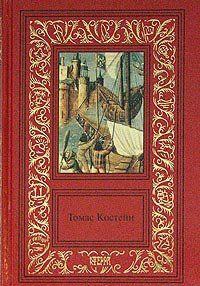
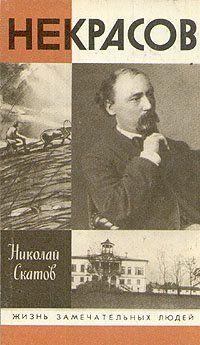

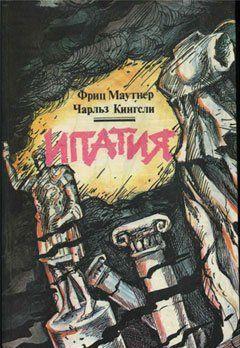


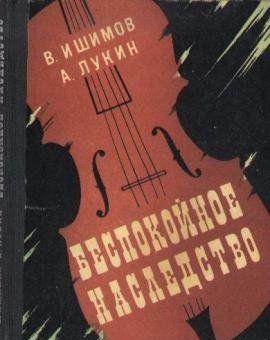

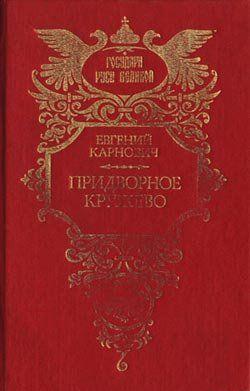
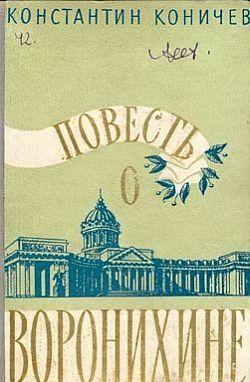
Комментарии к книге "The Luminaries"